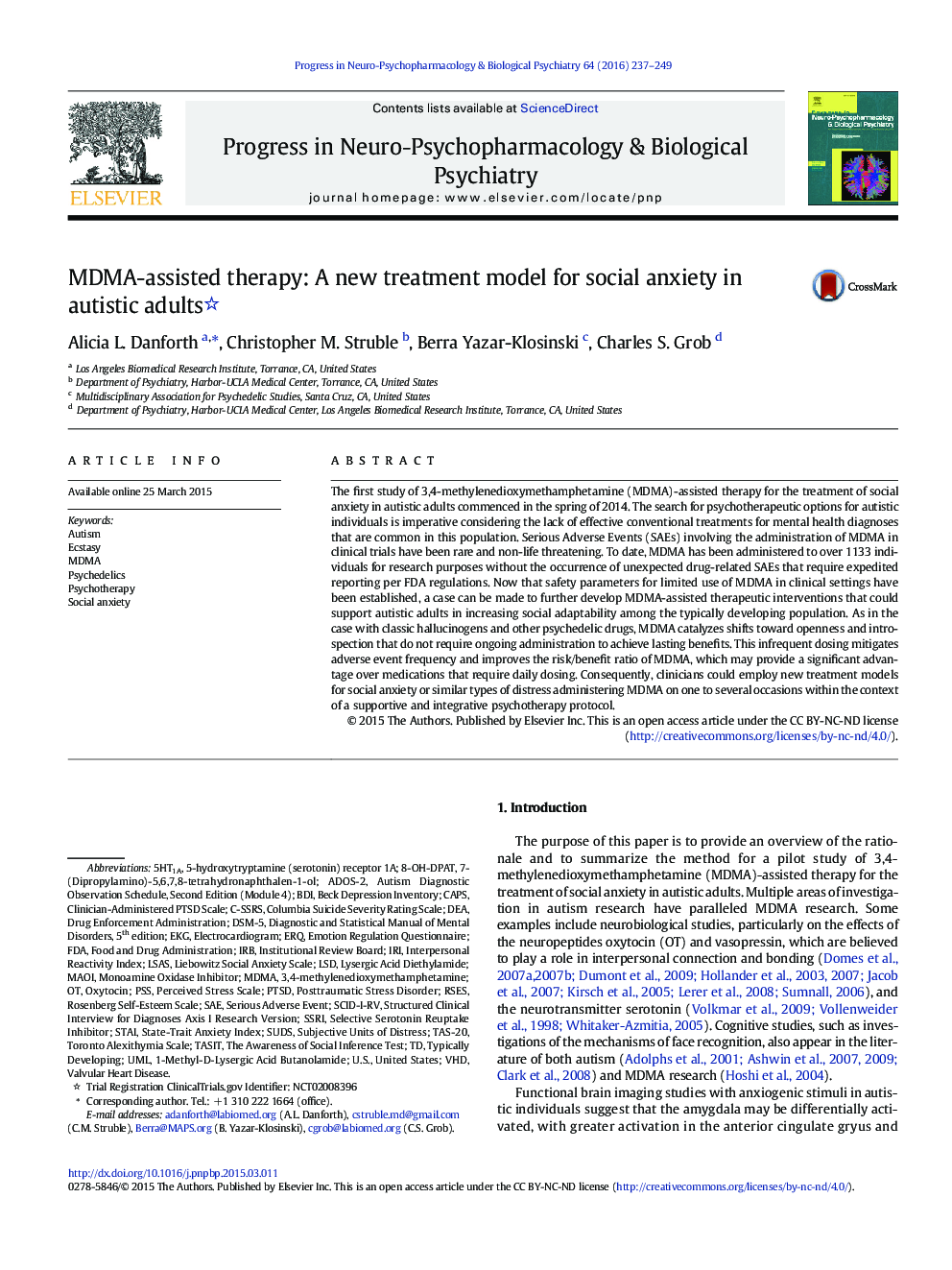| Article ID | Journal | Published Year | Pages | File Type |
|---|---|---|---|---|
| 5844288 | Progress in Neuro-Psychopharmacology and Biological Psychiatry | 2016 | 13 Pages |
Abstract
The first study of 3,4-methylenedioxymethamphetamine (MDMA)-assisted therapy for the treatment of social anxiety in autistic adults commenced in the spring of 2014. The search for psychotherapeutic options for autistic individuals is imperative considering the lack of effective conventional treatments for mental health diagnoses that are common in this population. Serious Adverse Events (SAEs) involving the administration of MDMA in clinical trials have been rare and non-life threatening. To date, MDMA has been administered to over 1133 individuals for research purposes without the occurrence of unexpected drug-related SAEs that require expedited reporting per FDA regulations. Now that safety parameters for limited use of MDMA in clinical settings have been established, a case can be made to further develop MDMA-assisted therapeutic interventions that could support autistic adults in increasing social adaptability among the typically developing population. As in the case with classic hallucinogens and other psychedelic drugs, MDMA catalyzes shifts toward openness and introspection that do not require ongoing administration to achieve lasting benefits. This infrequent dosing mitigates adverse event frequency and improves the risk/benefit ratio of MDMA, which may provide a significant advantage over medications that require daily dosing. Consequently, clinicians could employ new treatment models for social anxiety or similar types of distress administering MDMA on one to several occasions within the context of a supportive and integrative psychotherapy protocol.
Keywords
SAEEKGMDMACAPSDSM-55HT1AMAOILiebowitz Social Anxiety ScaleClinician-Administered PTSD ScaleDEAADOS-2VHDERQC-SSRSRSESLSASFDATASITBDILSDIRBPSSUML8-OH-DPATSUDSU.S.3,4-methylenedioxymethamphetamineTAS-20IRIPosttraumatic stress disorderPTSDDrug Enforcement AdministrationLysergic acid diethylamideSocial anxietyelectrocardiogramAutismEcstasyoxytocinUnited Statestypically developingvalvular heart diseaseDiagnostic and Statistical Manual of Mental Disorders, 5th EditionPsychotherapyPsychedelicsFood and Drug AdministrationInterpersonal Reactivity IndexSTAISerious adverse eventPerceived Stress ScaleToronto Alexithymia ScaleColumbia Suicide Severity Rating ScaleRosenberg Self-Esteem ScaleSelective serotonin reuptake inhibitormonoamine oxidase inhibitorSSRIinstitutional review boardBeck Depression Inventory
Related Topics
Life Sciences
Neuroscience
Biological Psychiatry
Authors
Alicia L. Danforth, Christopher M. Struble, Berra Yazar-Klosinski, Charles S. Grob,
